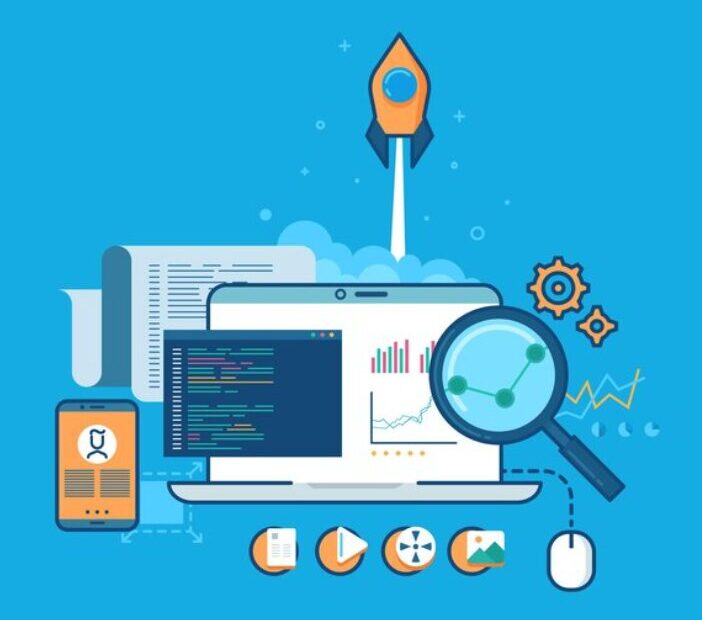Driven by technological advances, changing market demands, and the continuous pursuit of innovation. As we step into Trends in 2024, several emerging trends are poised to reshape the way developers create, deploy, and manage software. This article explores the most promising trends in software development for 2024, offering insights into the technologies and methodologies that will define the industry in the near future.
1. Increased Adoption of AI and Machine Learning
Artificial Intelligence (AI) and Machine Learning (ML) are not new to the software development scene, but their applications are becoming more sophisticated and widespread. Trends in 2024, we can expect these technologies to play a crucial role in automating coding tasks, enhancing development tools, and improving the accuracy of predictive models. AI-driven code completion tools, for instance, will become more advanced, significantly speeding up the development process and reducing errors.
2. Rise of Low-Code and No-Code Platforms
The democratization of software development continues with the rise of low-code and no-code platforms. These platforms enable individuals without a traditional programming background to create applications through graphical user interfaces and configuration instead of conventional coding. This trend is empowering more people to bring their digital ideas to life, potentially accelerating digital transformation across various industries.
3. Quantum Computing Gains Traction
Although still in its infancy, quantum computing is making strides towards practical application. In 2024,
we may see an increased focus on quantum computing research and the integration of quantum algorithms into mainstream software development. This could revolutionize areas such as cryptography, data analysis, and material science, offering computational powers far beyond what is possible with classical computers.
4. Emphasis on Cybersecurity
As digital threats become more sophisticated, cybersecurity will remain a top priority for software developers. The integration of security practices throughout the development lifecycle, known as DevSecOps, will become more prevalent. Developers will need to adopt more advanced encryption techniques, secure coding practices, and continuous vulnerability testing to protect against evolving cyber threats.
5. Sustainable Software Development
Sustainability in software development is gaining attention as the industry looks to reduce its environmental impact. Developers are increasingly considering the energy efficiency of their code, optimizing software to consume less power and leveraging cloud infrastructures that prioritize renewable energy. In 2024,
sustainable development practices will become a key consideration for companies striving to meet their environmental, social, and governance (ESG) goals.
6. Expansion of Remote and Distributed Teams
The trend towards remote work, accelerated by the global pandemic, is set to continue in 2024. Software development teams will become more geographically dispersed, necessitating the use of tools and practices that support effective collaboration and communication across distances. This shift is likely to drive innovations in project management software, real-time collaboration tools, and virtual office technologies.
7. Growth of Edge Computing
As the Internet of Things (IoT) continues to expand, edge computing will become increasingly important. By processing data closer to where it is generated, edge computing reduces latency, saves bandwidth, and improves privacy. In 2024,
software developers will need to create solutions that leverage edge computing capabilities, especially for applications in autonomous vehicles, smart cities, and industrial IoT.
Conclusion
The future of software development is bright, with numerous exciting trends on the horizon. As developers, staying informed about these trends and adapting to the evolving landscape is crucial for success. Whether through embracing AI and ML, engaging with low-code platforms, or pioneering quantum computing applications, the opportunities for innovation and growth in 2024 are vast. By prioritizing security, sustainability, and effective collaboration in a distributed world,
software developers can not only drive technological advancement but also address some of the most pressing challenges of our time.
